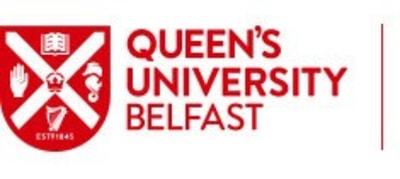
PhD in Public Health
Queen's University of Belfast - Medical Faculty

Key Information
Campus location
Belfast, United Kingdom
Languages
English
Study format
On-Campus
Duration
3 years
Pace
Full time, Part time
Tuition fees
GBP 4,596 / per year
Application deadline
Request info
Earliest start date
Sep 2024
Introduction
The School of Medicine, Dentistry, and Biomedical Sciences trains ~250 postgraduate research students undertaking Ph.D., MD, and MPhil degrees in Cancer Research and Cell Biology, Experimental Medicine, Public Health, Medical Education, and Dentistry. Its diverse postgraduate student population comprises both basic and clinical scientists from across the globe engaged in wide-ranging research projects spanning the breadth of the School’s research portfolio from traditional epidemiology to 'big data science and bioinformatics, through molecular and cell biology to clinical trials.
Subject Summary
As a postgraduate student in the School of Medicine, Dentistry, and Biomedical Sciences you will join a vibrant research community addressing key global healthcare challenges. You will work closely with academic and postdoctoral staff as a central and highly-valued component of the School’s research program, thereby contributing to key discoveries in disease mechanisms which are translated towards innovative prevention and therapeutic strategies which will ultimately improve the quality of life and survival of patients. A direct translation of research findings from bench to bedside is facilitated by close collaborative interaction between clinical and basic research scientists as a hallmark of our research program, allowing the direct translation of excellent science to clinical benefit.
Medicine Highlights
Industry Links
The School of Medicine, Dentistry, and Biomedical Sciences promotes close collaborative interaction with local and global biotechnology companies, such as Almac and Randox. Such relationships are underpinned by innovative discovery science and its clinical application and have resulted in the development of novel diagnostic/prognostic applications and therapies.
Career Development
The School of Medicine, Dentistry, and Biomedical Sciences postgraduate program trains students in both research-specific and generic skills towards the promotion of professional development. Students may also avail of career development advice at the School's annual Postgraduate Research Forum, through its peer mentoring program, and as part of their individual Postgraduate Development Programme. The QUB Graduate School also provides wide-ranging opportunities for career development which complement School-specific postgraduate research training.
World Class Facilities
As a member of the Russell Group of leading UK Universities, Queen’s University Belfast is committed to maintaining the very best research. In the last Research Excellence Framework exercise, 99% of our research environment was judged to be internationally excellent or world-leading, whilst Queen’s was ranked joint 1st in the UK for research intensity. Queen’s is ranked 1st in the UK as the most entrepreneurial University. As such, Queen’s provides an ideal environment to support high-quality postgraduate research.
Postgraduate students in the School of Medicine, Dentistry, and Biomedical Sciences will undertake their research projects within the Institute of Health Sciences which has benefitted from significant recent investment (>£100M) and boasts state-of-art facilities and technology.
Student Experience
The School of Medicine, Dentistry, and Biomedical Sciences provides a vibrant environment for postgraduate research training. There are currently ~250 students undertaking wide-ranging basic science and clinical research projects who work closely together with postdoctoral and academic staff across the Institute of Health Sciences. Students are encouraged to interact both within and across disciplines through formal and informal School events, many of which are student-led.
Admissions
Curriculum
The overall mission of the Centre for Public Health (CPH) is to improve health and reduce inequalities, prevent and manage chronic disease and disability more effectively, and improve the delivery of health and social care. CPH comprises four main research themes focus Epidemiology and Public Health, Cancer Epidemiology, Nutrition, and Public Health, and Health Services and Global Health. Our Epidemiology and Public Health research group harnesses Big Data in discovery science and its application to clinical and public health practice, to help to understand how both molecular biomarkers and environments (including social norms and networks) shape risk in individuals and populations. Our Cancer Epidemiology research group includes programs focussed on pre-malignancy molecular epidemiology, gastrointestinal cancer progression, precision medicine, and pharmaco-epidemiology exploring the potential for drug re-purposing. Our Nutrition and Public Health research group works across the life course to understand the determinants of a healthy diet in individuals, at-risk groups (e.g. schoolchildren, pregnant women, older people), and whole populations, and on identifying ways to improve it. Our Health Services and Global Health research group focuses on health care for people with chronic conditions and poor mental health, quality improvement, and implementation science, oral health and related cancers, trial methodology, health economics, and global eye health. Our Dentistry and Oral Health Care research has a focus on gerontology, head and neck cancer, and nutrition.
Scholarships and Funding
We offer prestigious, competitive scholarships of up to 50% off tuition fees to new international students. You must have an offer to study a full-time course with us in 2023 to apply for a scholarship. Find out more by contacting the university.
Career Opportunities
The majority of postgraduate research students within the School of Medicine, Dentistry, and Biomedical Sciences continue to successfully secure appropriate employment upon completion of their studies. Chosen careers are generally relevant to their qualification within industry, academia, and the National Health Service and have included postdoctoral research across the world, clinical/non-clinical academia, return to full-time clinical work, medical writing, industry research, management/financial consultancy, and R&D software development. The School runs a dedicated careers session at its annual Postgraduate Research Forum and careers-focussed peer mentoring from postdoctoral researchers whilst students are expected to discuss potential careers with their supervisors as part of their individual Postgraduate Development Programme.
Employment after the Course
All postgraduate research students can avail of career advice from the Graduate School whilst postdoctoral employment opportunities are highlighted at the annual School Postgraduate Research Forum within a dedicated session. Students should also discuss potential careers with their supervisors as a central focus of their individual Postgraduate Development Programme.